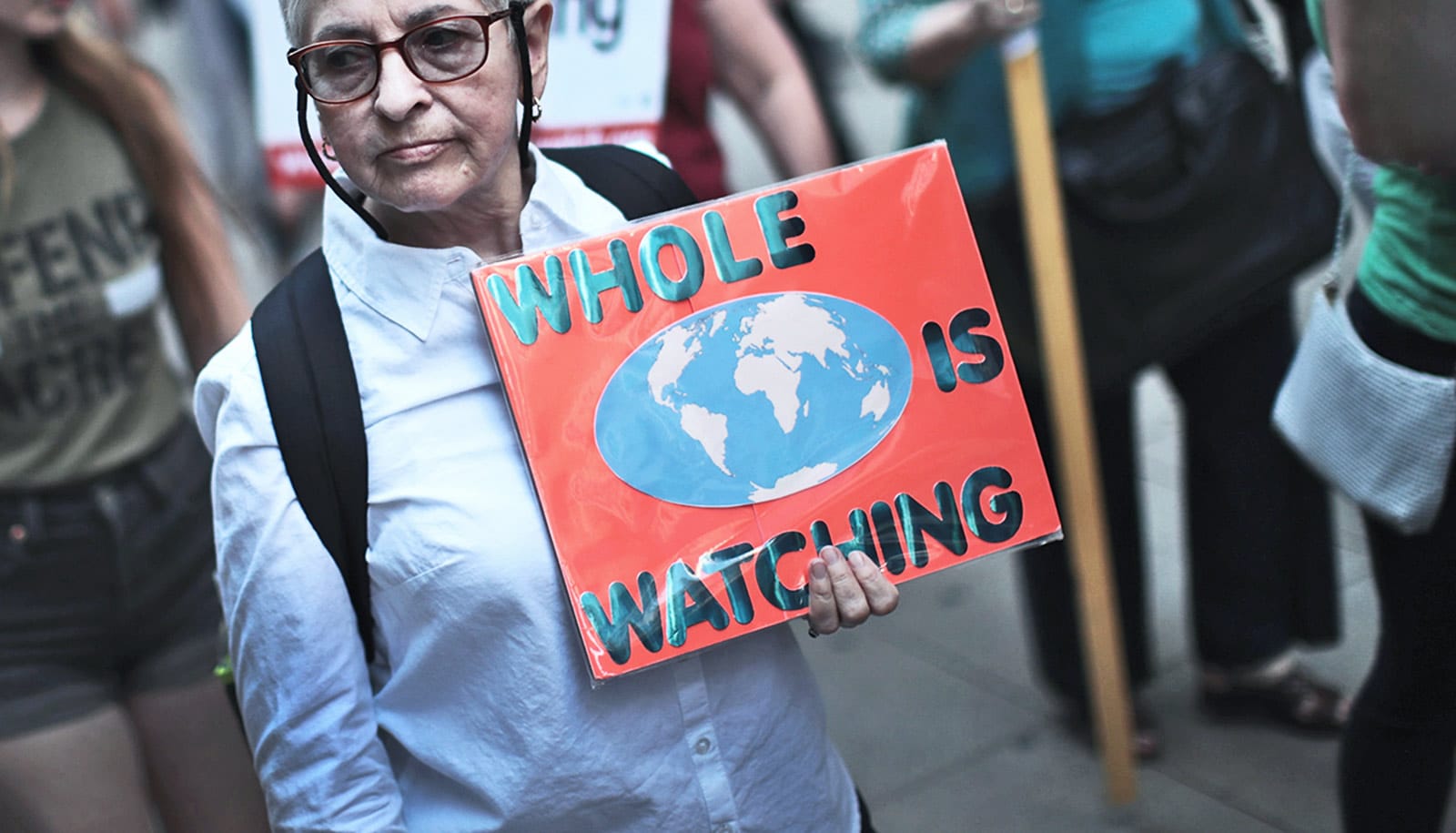A new study uses game theory and greenhouse gas emissions data to predict the success of the Paris Agreement without United States involvement.
November 2020 marks the earliest date that the United States can effectively withdraw from the Paris Agreement on Climate Change. That withdrawal puts the future global success of mitigating the effects of climate change into question.
Oleg Smirnov, associate professor of political science at Stony Brook University, addresses the issue in a paper in the Journal of Theoretical Politics. He developed a model using game theory to predict the actions of the various countries that have signed onto the Paris Agreement.
Game theory looks at competitive situations in which the outcomes depend on the actions of the players of the game. In this case, the players are the countries involved in the Paris Agreement and how their climate mitigation actions affect the decisions and actions of other countries. Unlike past research on the topic, Smirnov has used actual greenhouse gas emissions data instead of hypothetical situations to predict the outcome of the US pulling out of the Paris Agreement.
Smirnov’s paper notes that with the withdrawal of the US, expectations fall on the remaining countries to make up the difference left to mitigate the effects of global climate change. However, Smirnov also writes that while developed countries have the greatest resources to combat global climate change and reduce greenhouse gas emissions, many have already committed to drastic changes and are unlikely to make more changes because many have reached their cap on what they feel is their fair share of contribution.
Because of this conundrum, his game theory analysis shows much of the burden would fall on large developing countries, such as China and India, to take action to reduce their own greenhouse gas emission.
Smirnov concludes that, while technically the world can meet the Paris Agreement targets without the US, “The history of climate negotiations suggests that … large developing countries may not be willing to accept an unfair distribution from international climate negotiations.”
Funding for the work comes from the National Science Foundation.
Source: Stony Brook University



